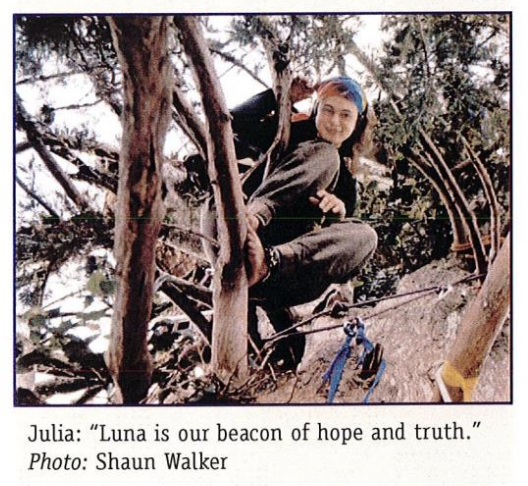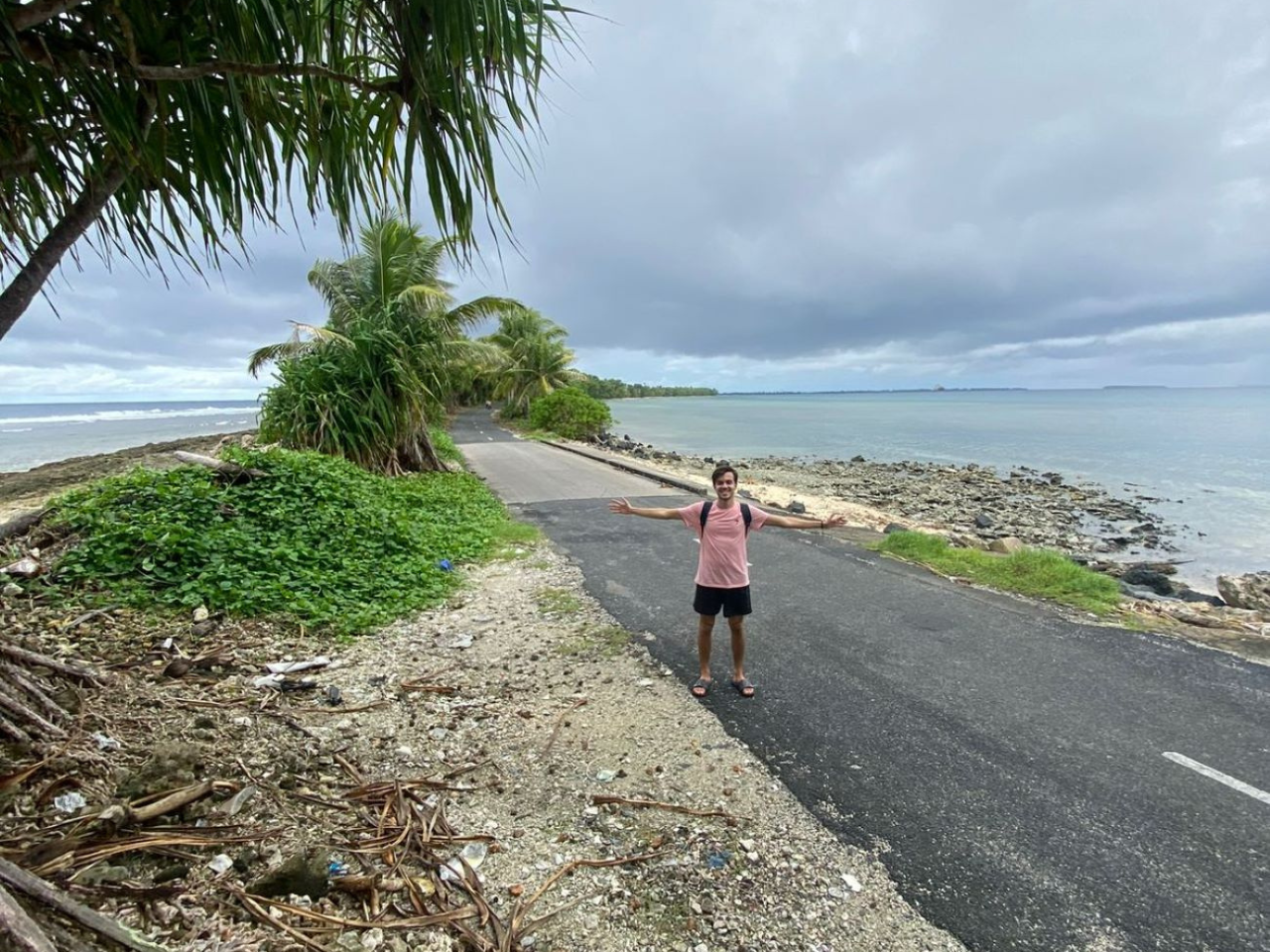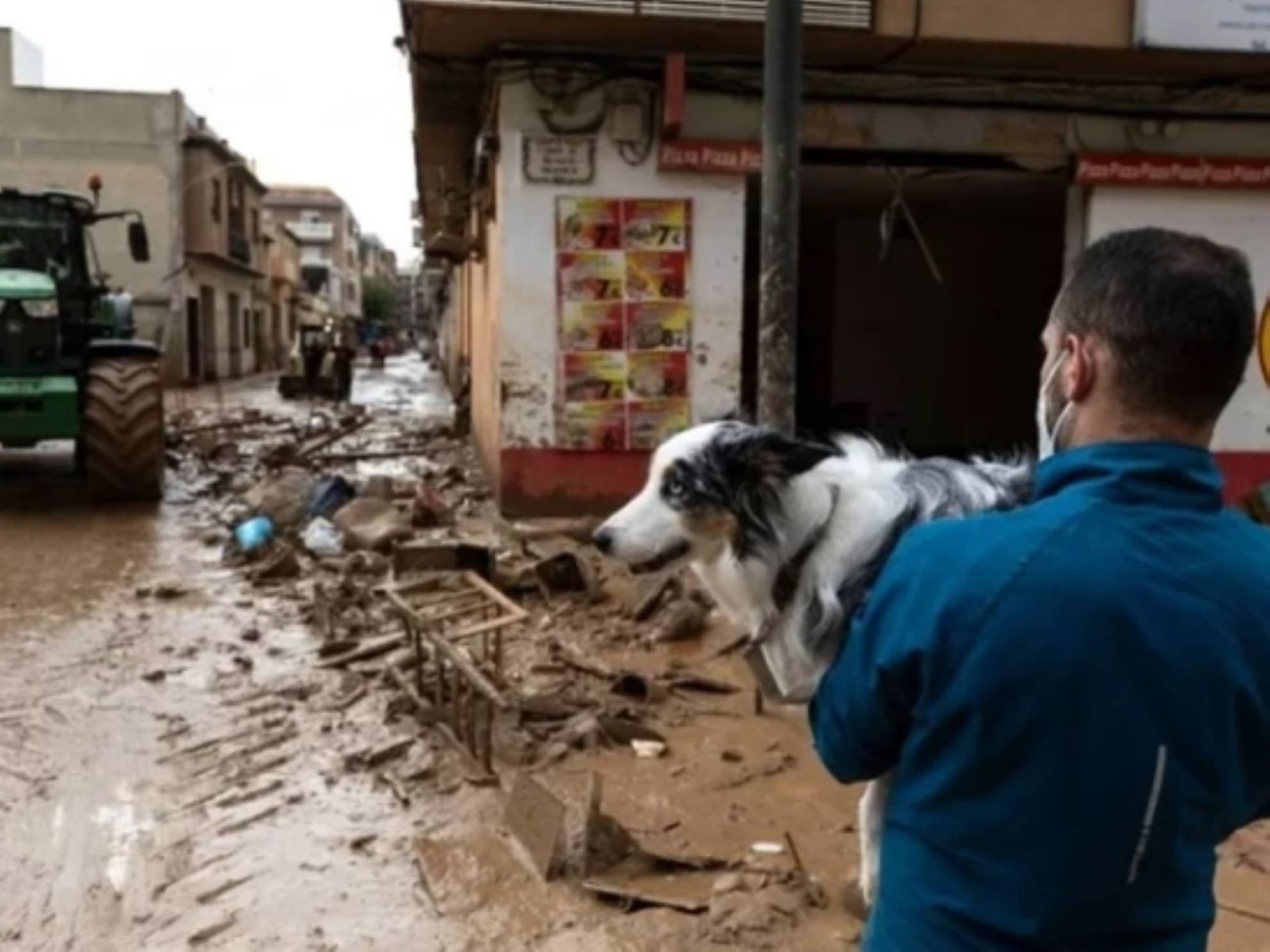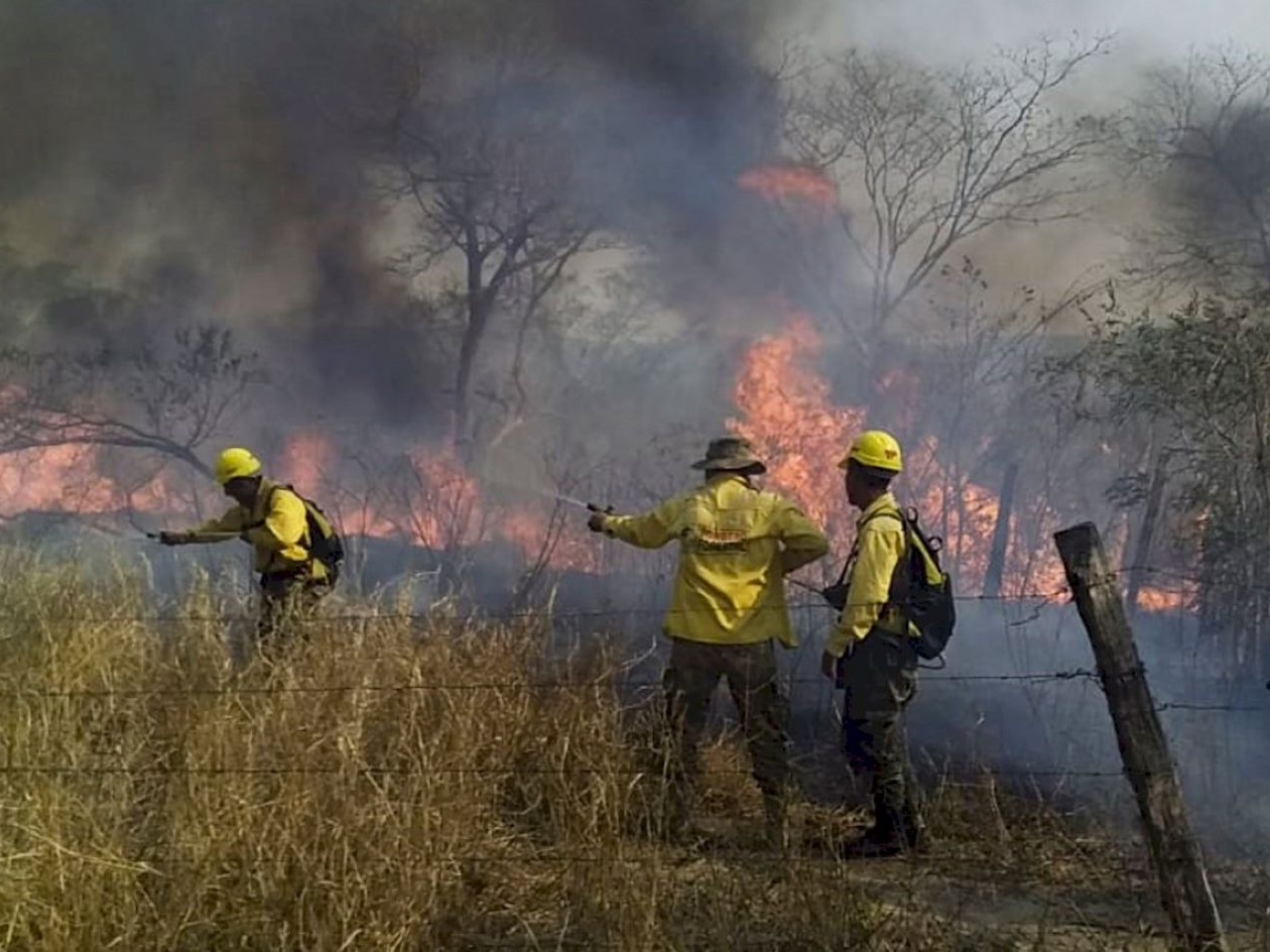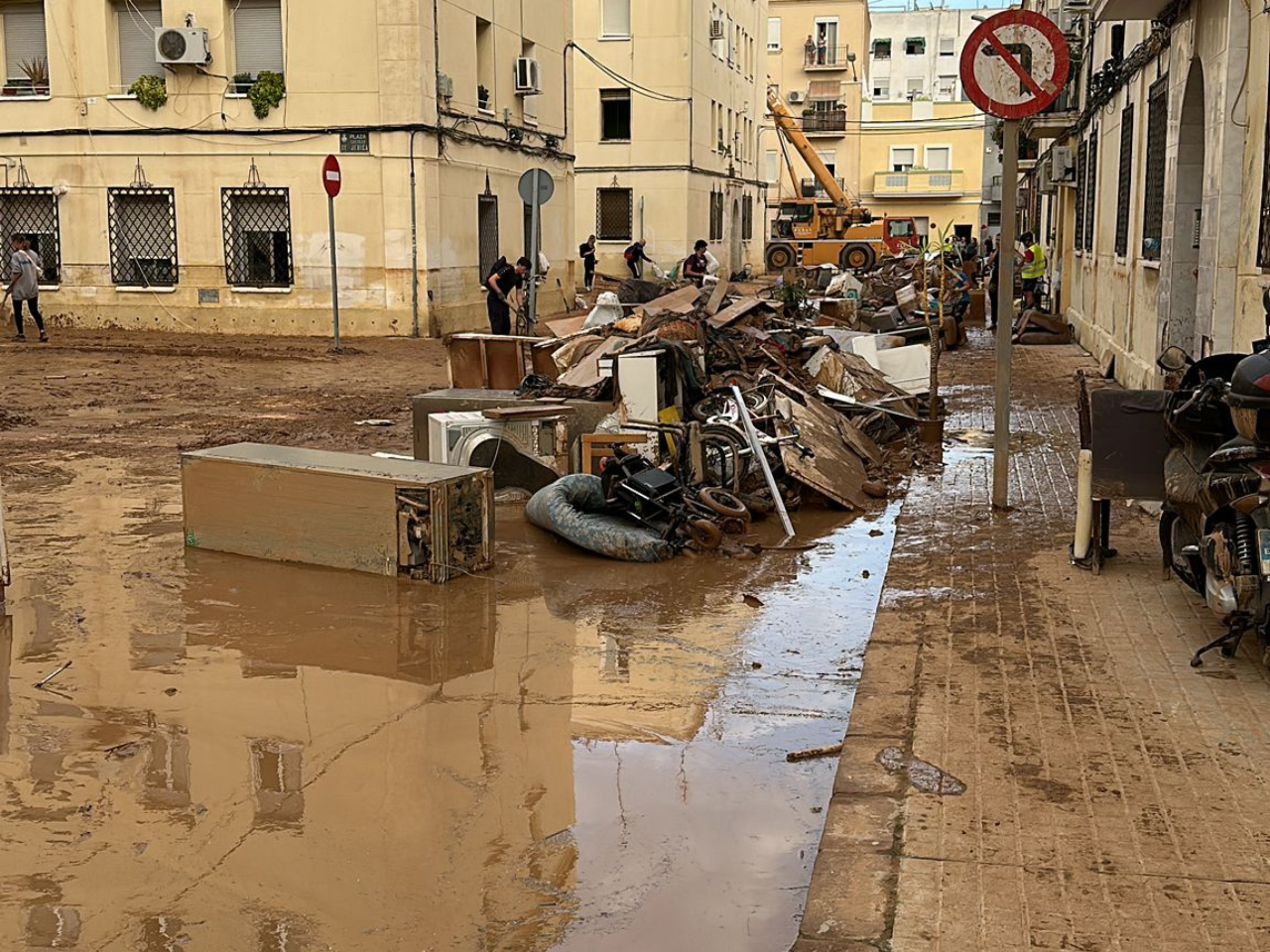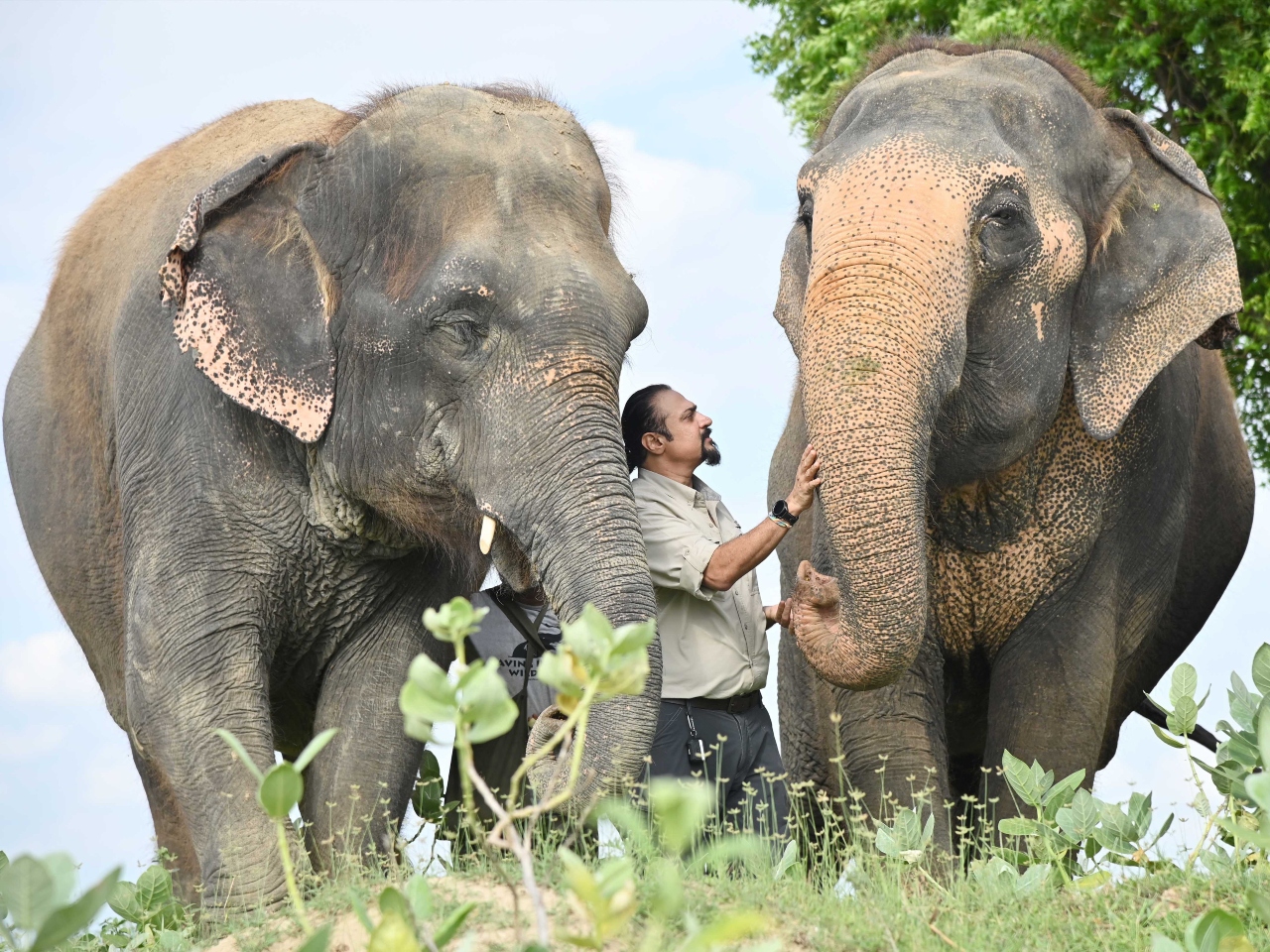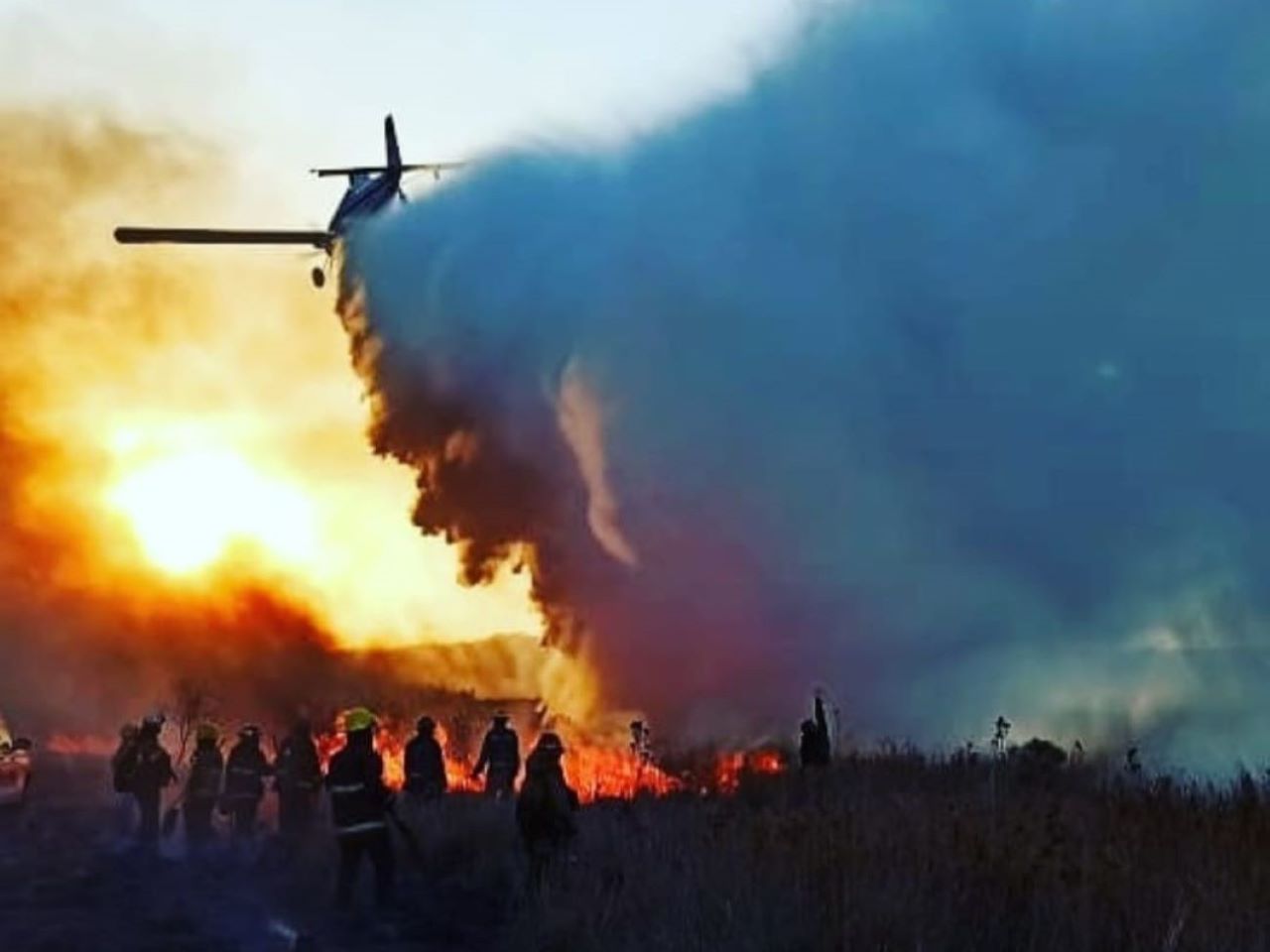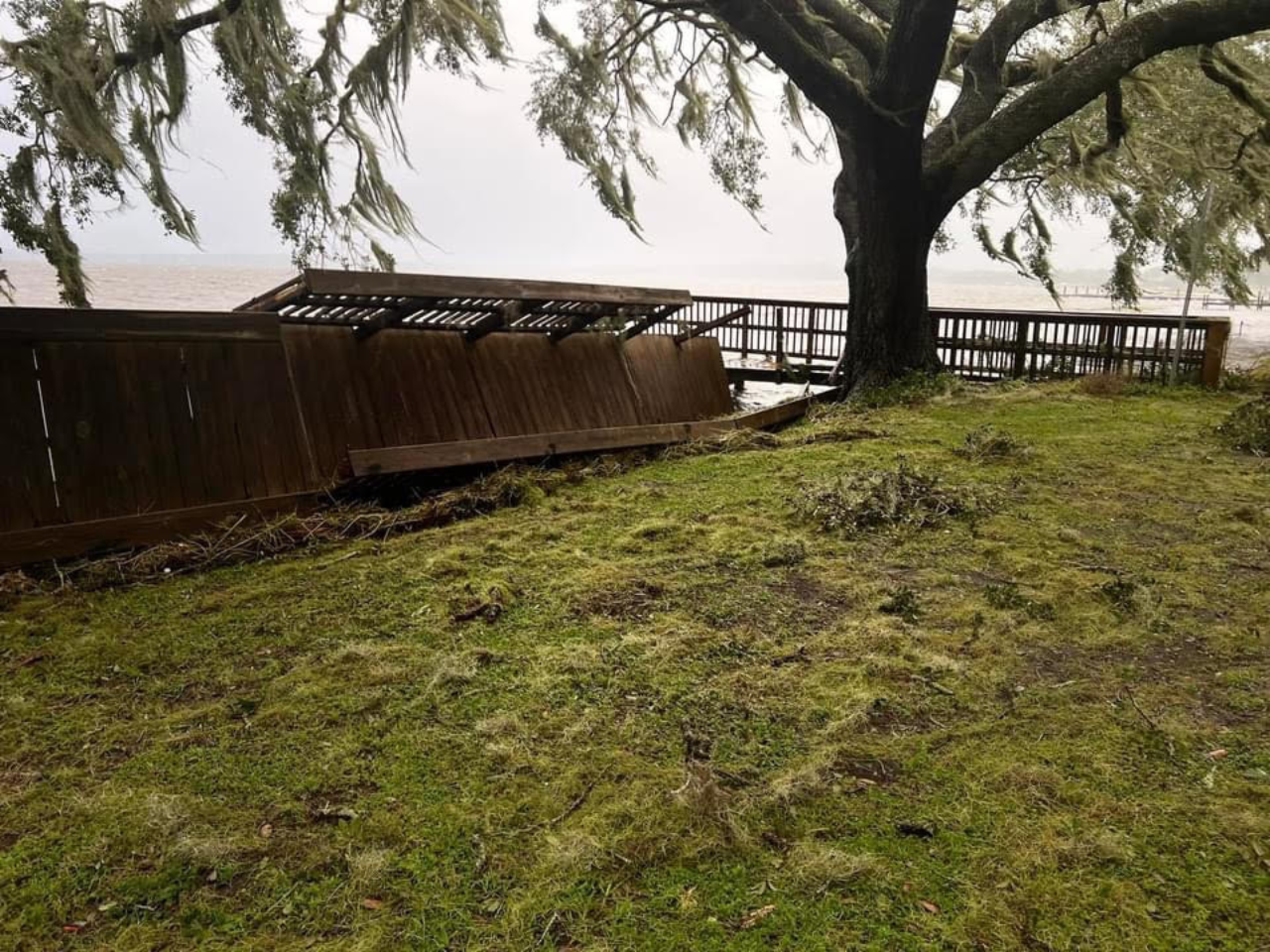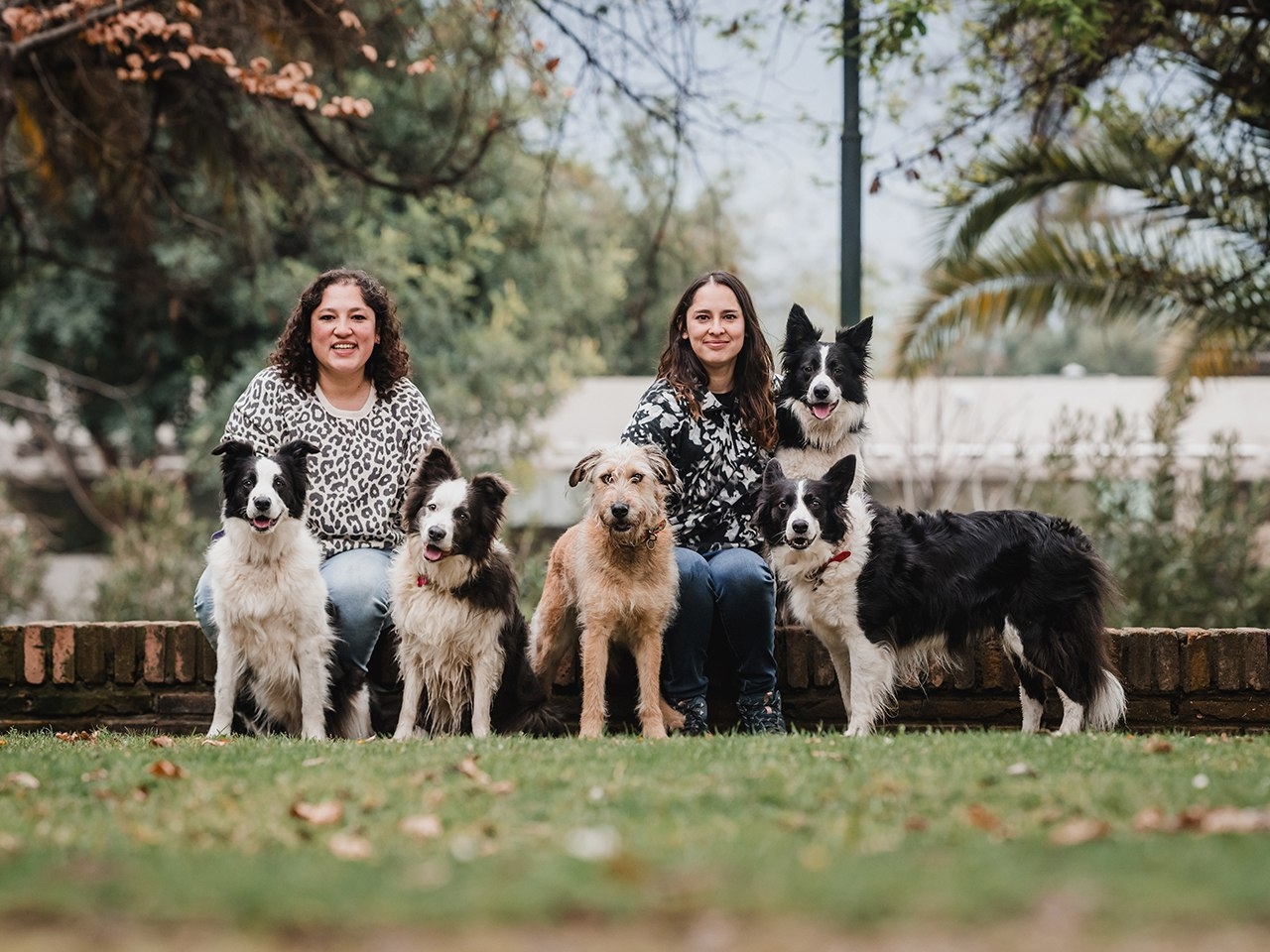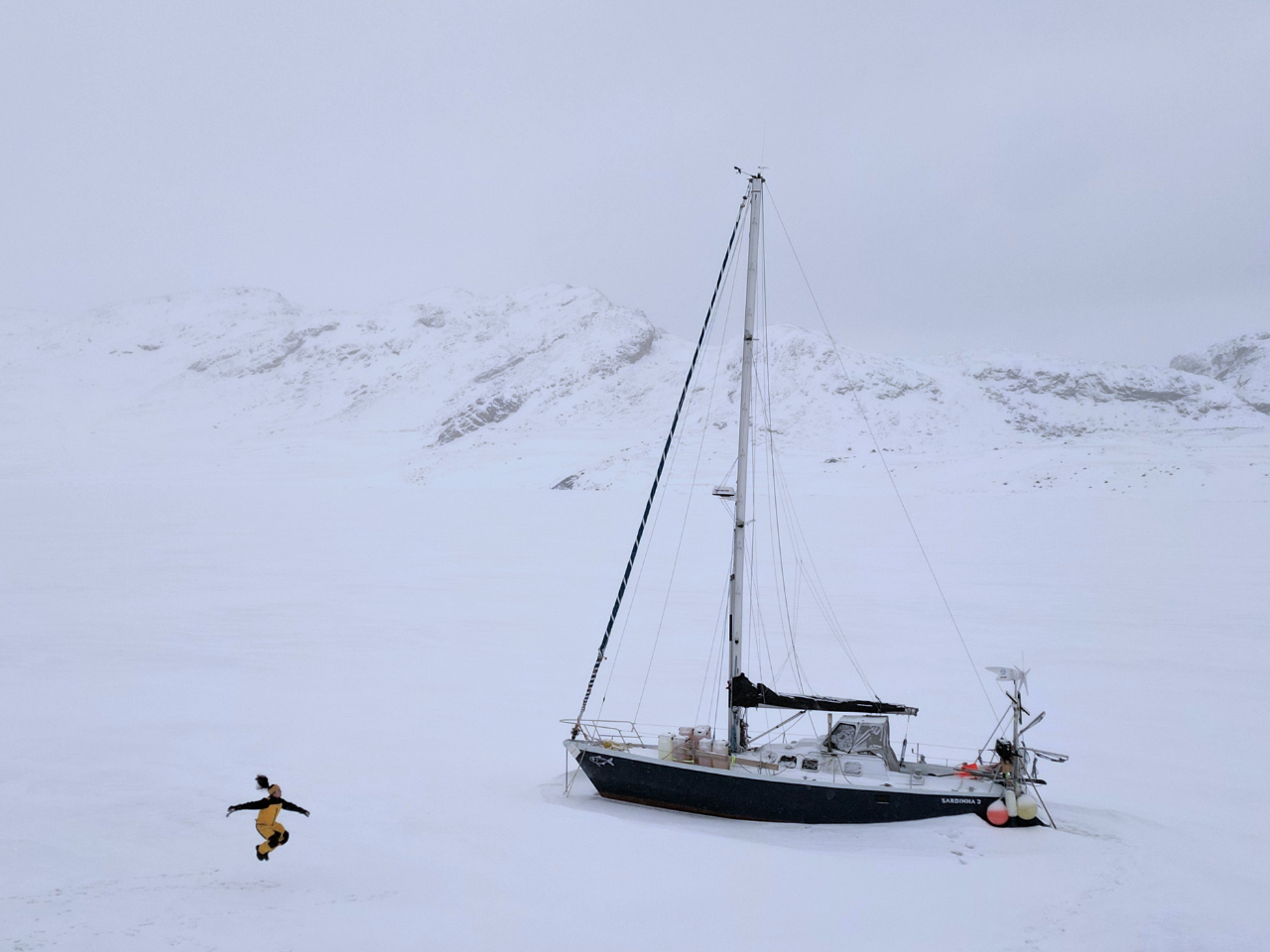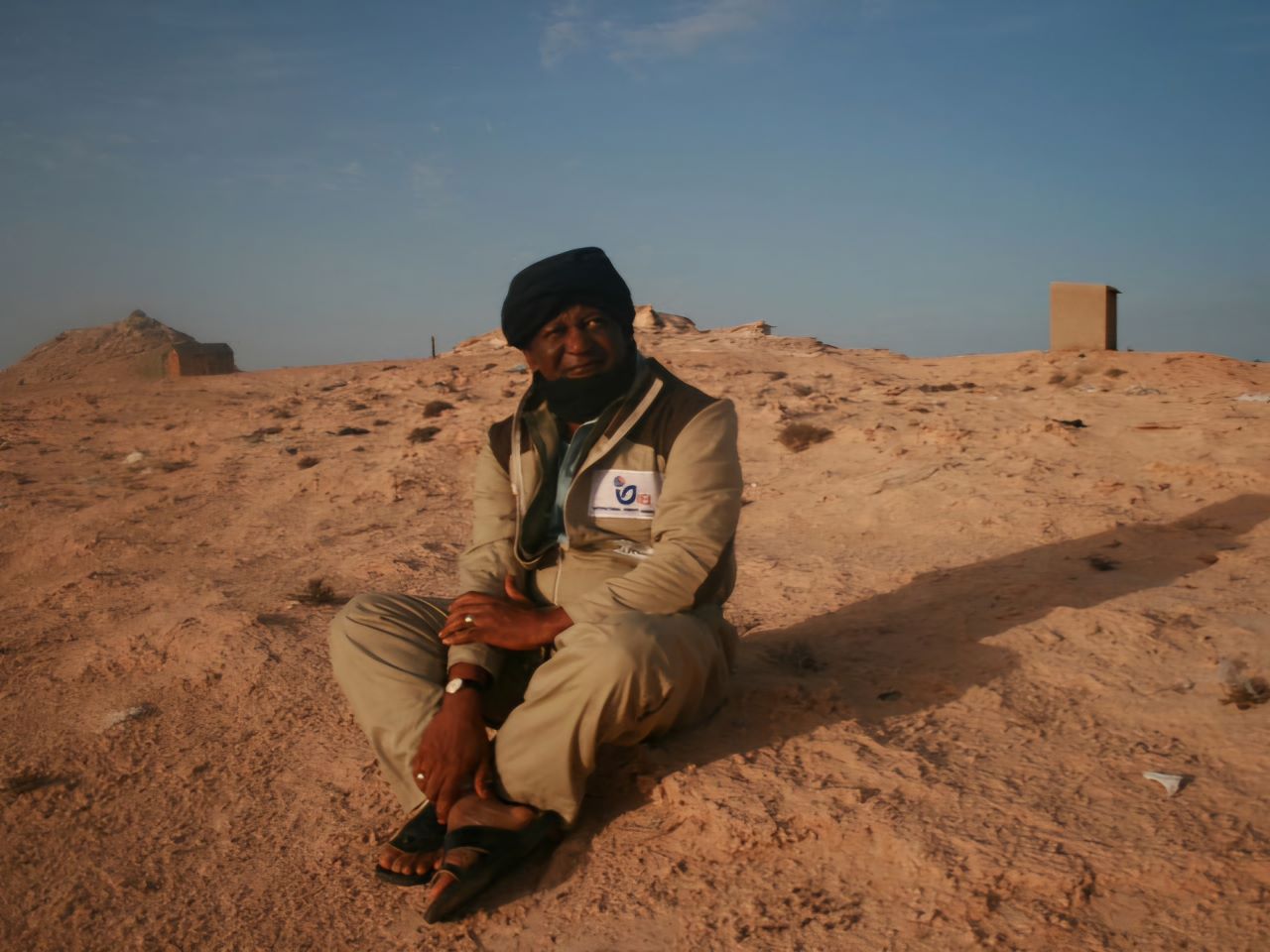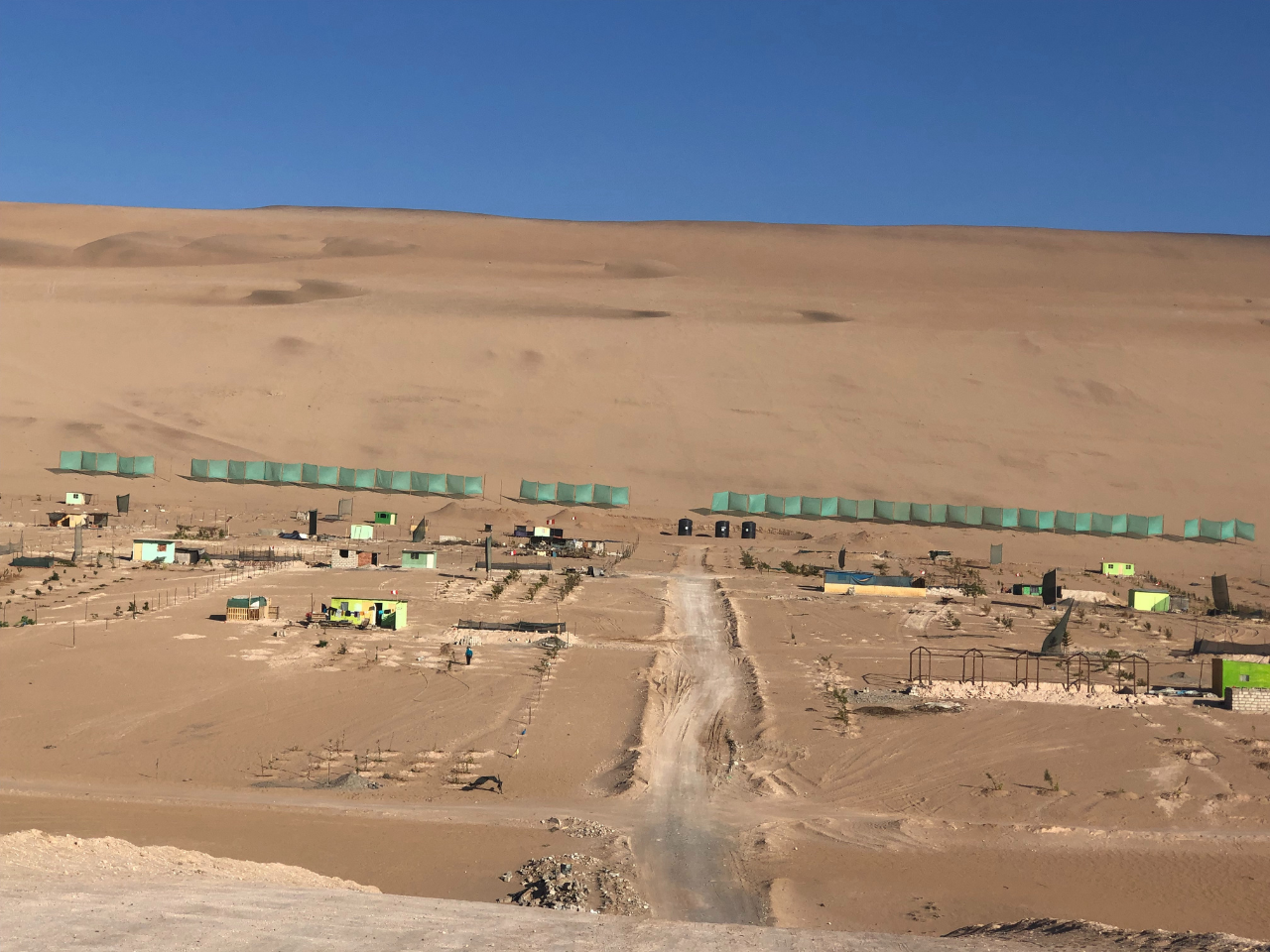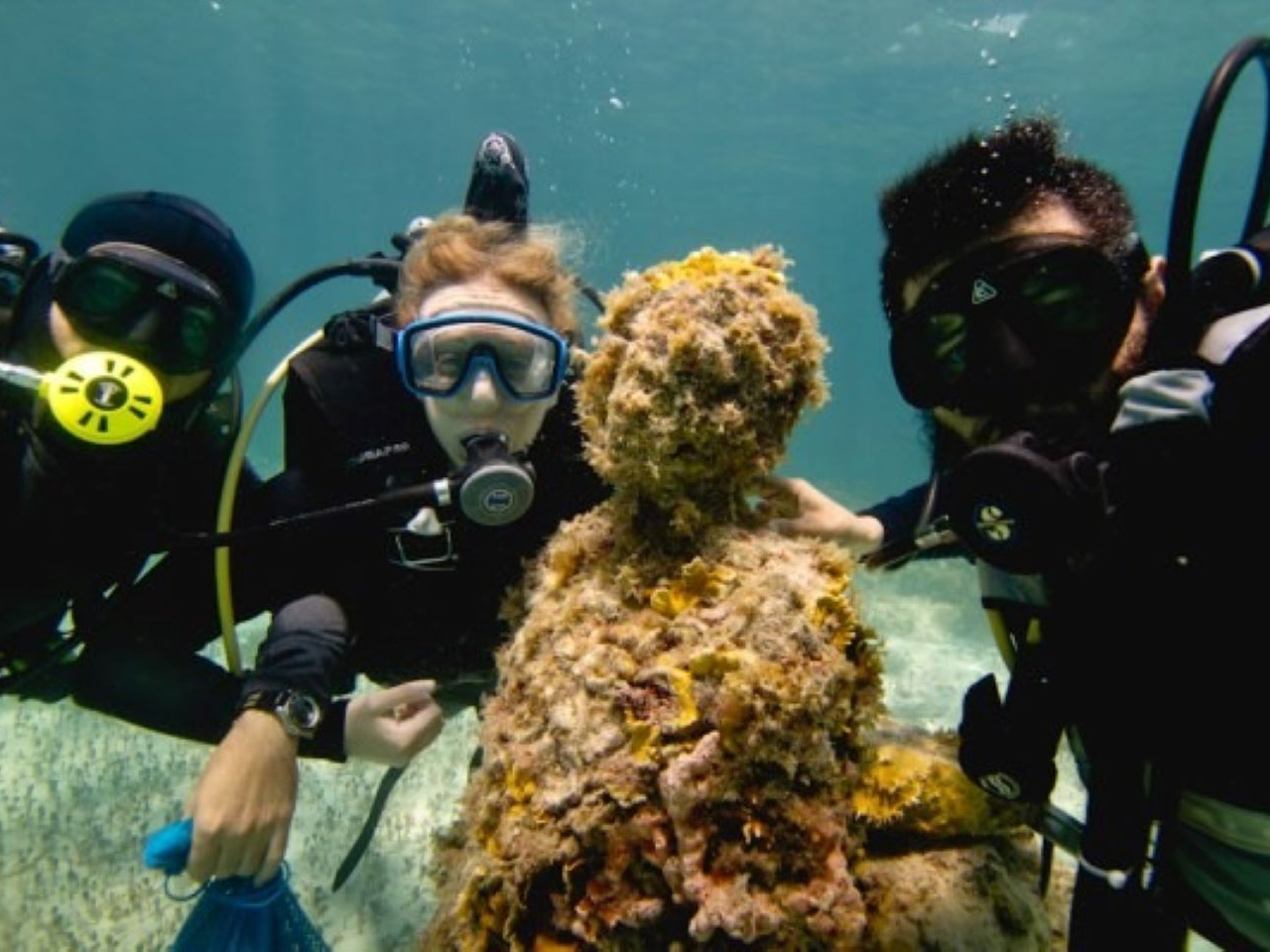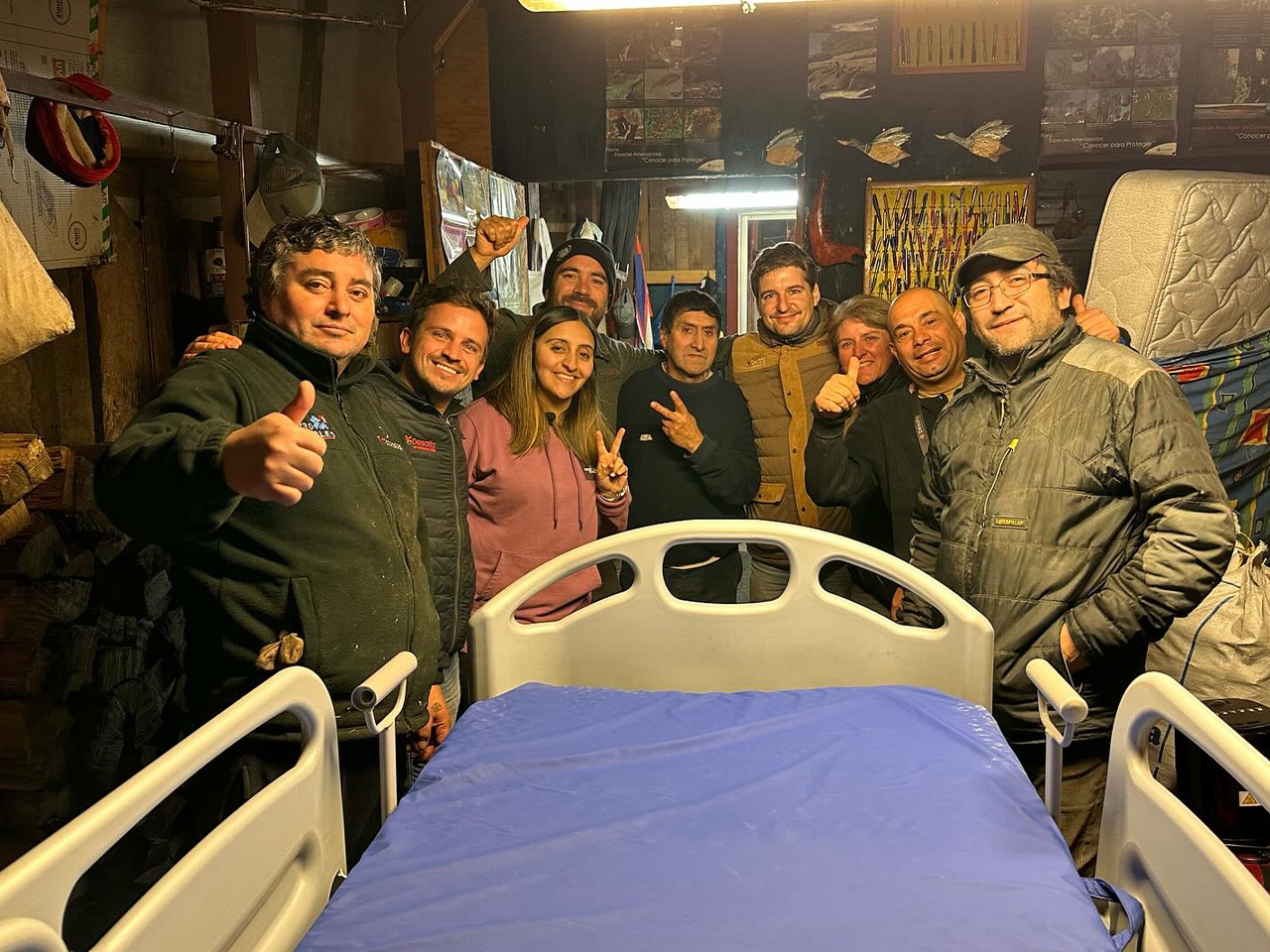Hurricane Milton devastates Florida: chaos, destruction, and a community’s resilience
At one point, the noise grew so loud that several people stood up in fear as the entire building shuddered. Doors in the main hallway slammed open and shut, and objects crashed outside, echoing loudly. Someone screamed when water began pouring in faster, and families scrambled to find a safer corner, their faces etched with terror.
- 1 year ago
November 18, 2024
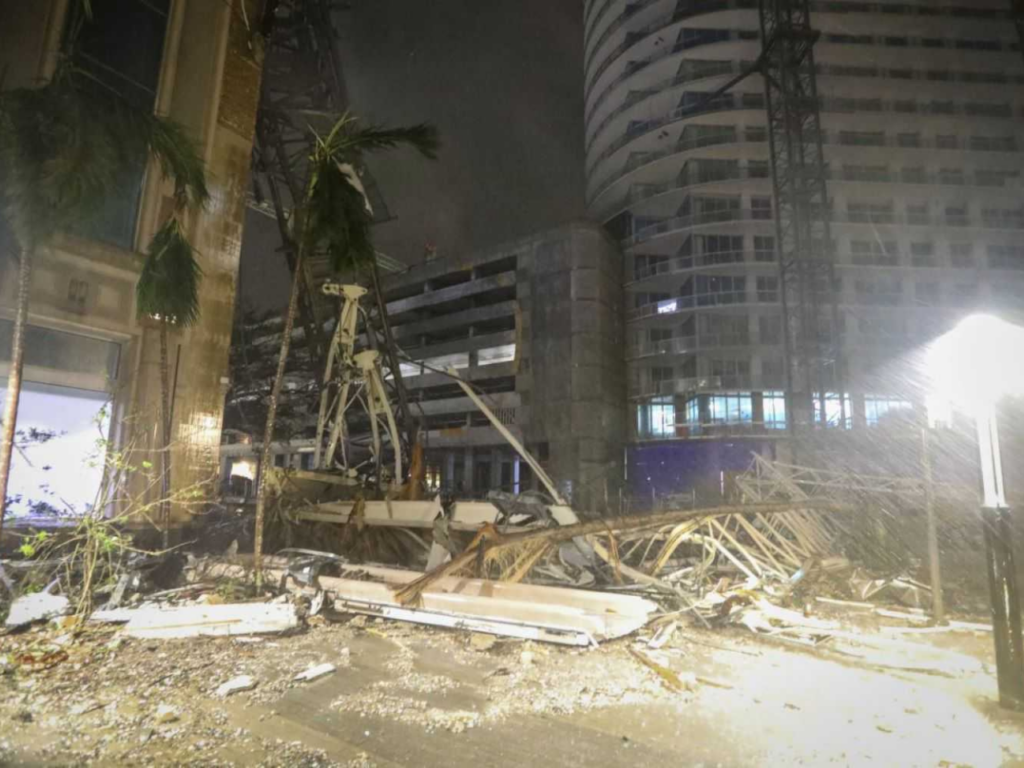
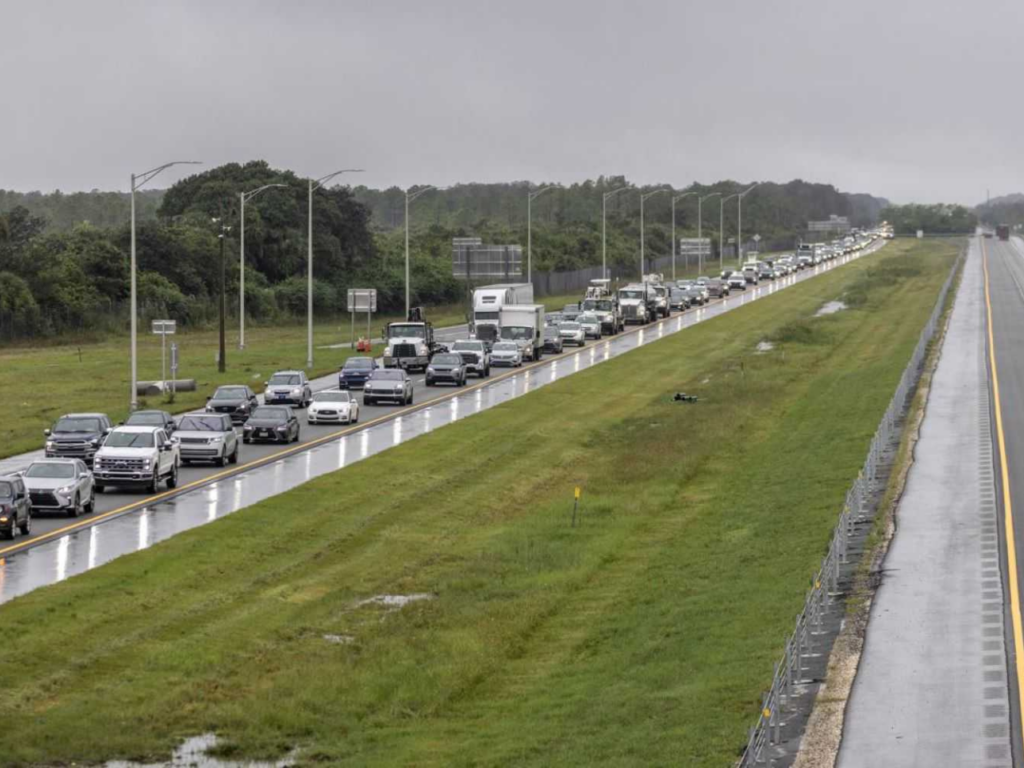
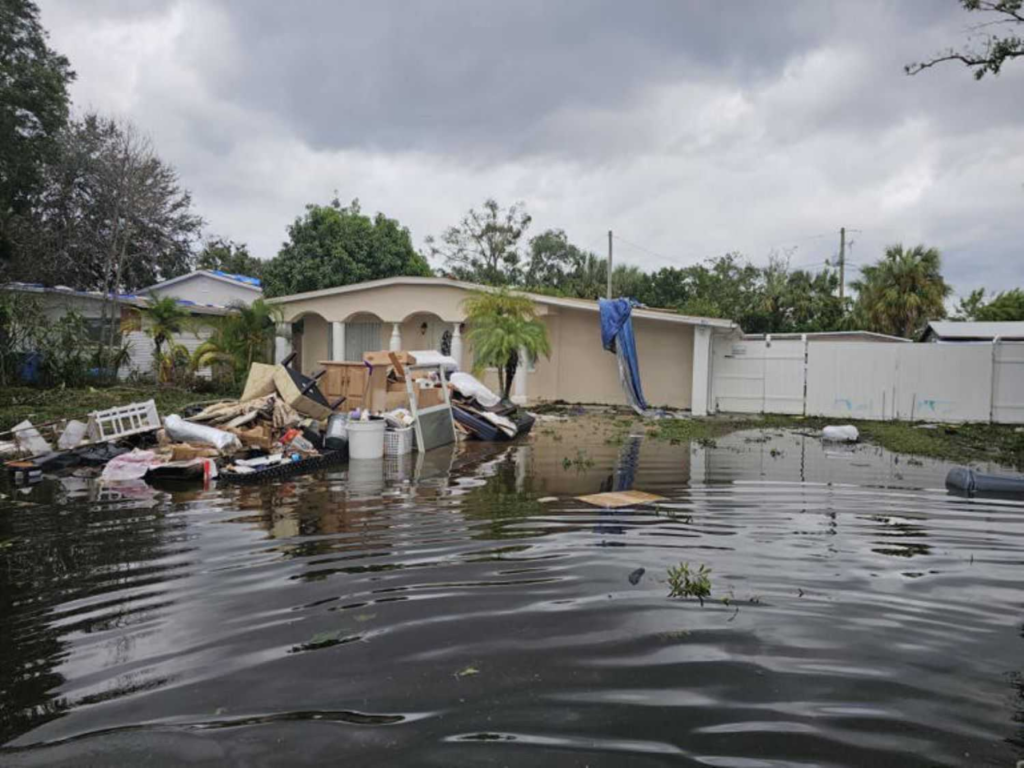
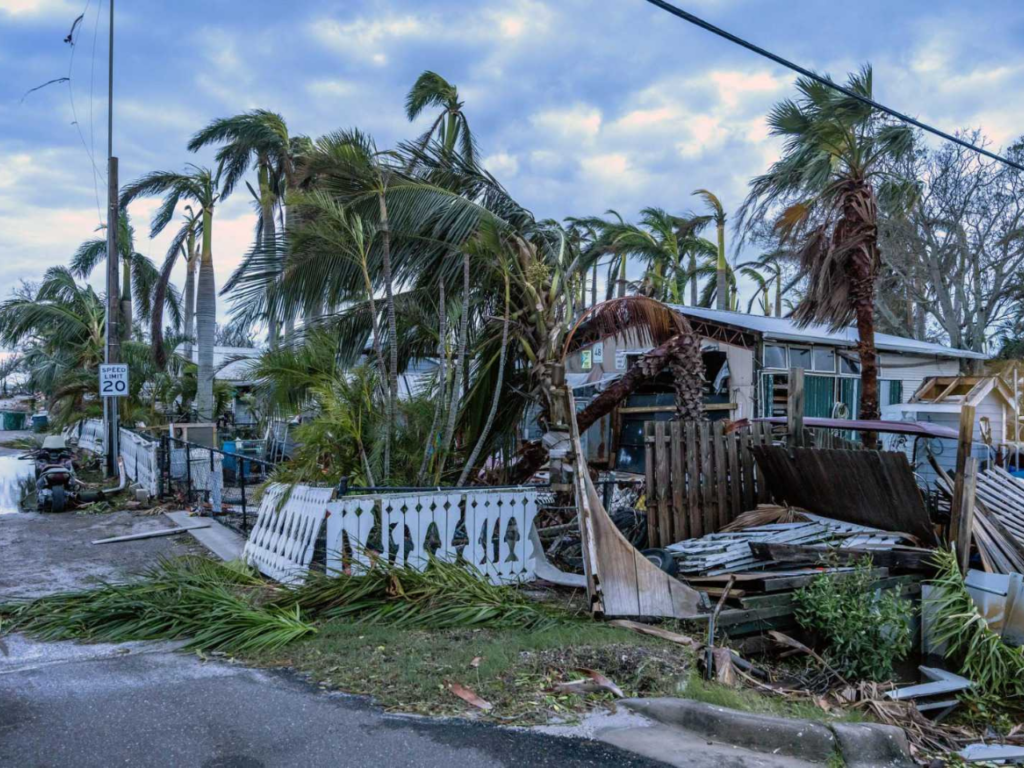

FLORIDA, United States — For days, the news relentlessly warned of a massive cyclone rapidly gaining strength through the Caribbean. By October 8, 2024, there was no escaping the reality. Tampa lay directly in the path of Hurricane Milton. The storm intensified into a monstrous Category 4, with sustained winds predicted to reach 150 miles per hour.
My phone buzzed constantly with evacuation alerts. Every channel echoed urgent calls to leave, pleading with those in at-risk areas. Maps showed Milton barreling toward Tampa Bay, with storm surges expected to flood entire streets and landmarks. Gas stations ran out of fuel, highways snarled with gridlocked cars, and a deep panic spread through the city.
Read more environment stories at Orato World Media.
Hurricane Milton gains strength
Meteorologists warned of devastating storm surges and the risk of tornadoes. Television anchors spoke with tense, serious voices as their faces reflected the fear of potential destruction. Milton already wreaked havoc on the Gulf Coast before landfall, leaving behind submerged neighborhoods and debris-strewn streets. Then came the breaking news.
Milton strengthened to a Category 5 hurricane. I turned to my wife as disbelief and dread tightened in my chest and the sky darkened. That night, we decided not to risk it. We just endured a massive storm a week earlier, and we knew staying could be dangerous. My wife, nephew, and our children Gia and Iban secured the house.
We boarded up the windows, stacked sandbags, and reinforced every vulnerable spot against the wind. Tampa transformed into chaos as the storm approached. The streets appeared empty as howling gusts bent trees. Black clouds churned above, occasionally lit by bursts of lightning that illuminated sheets of rain and swirling debris. Homes looked fragile, dwarfed by the immense power of the hurricane.
News broadcasts echoed the same urgent warnings. The eye of the storm was closing in, with winds nearing 150 miles per hour, capable of tearing apart roofs and leveling buildings. In the early morning hours, authorities ordered us to evacuate. We packed the essentials including food, flashlights, water, documents, and a few sets of clothes.
Four-year-old Gia clung to her favorite stuffed animal, holding it like a shield. As I shut our front door, a wave of emptiness struck me. Leaving our house behind, I felt uncertain we would ever return to it intact. The gray sky loomed above, and wind whipped dust and leaves into frantic spirals. Fear shadowed us like a constant companion.
Fleeing from a nightmare: “It felt like the storm swallowed the entire city”
Driving to the shelter felt like fleeing from a nightmare. We packed everything into the car. I remember the dry click of the doors closing, the snap of seat belts, the engine’s rumble, and the sound of the tires rolling over the asphalt. The road felt frozen in time. Houses on either side stood abandoned, their windows hastily boarded up or covered with plastic sheeting which whipped violently in the wind. Leaves swirled across the empty streets.
A few cars moved alongside us, under a sky that grew darker by the minute. We passed deserted gas stations with fuel hoses draped in plastic bags. Signs seemed to shout, “NO FUEL.” Some traffic lights went out, and glancing in the rearview mirror, I saw nothing but the empty road. It felt like the storm swallowed the entire city.
A shelter 15 minutes away made use of a local school converted by the county to house hundreds of families. Abandoned cars littered the roadside. Their owners, having run out of gas, continuing on foot. Heavy clouds spun with a terrifying speed, and bursts of rain lashed down, cutting visibility to just a few meters. When we arrived, chaos overwhelmed us. We saw families clutching bags, children sobbing, and adults glued to their phones, desperate for updates.
The parking lot overflowed, and people sprinted to the entrance, their faces tight with panic. The wind howled around us, growing fiercer by the second. Inside, volunteers gave us armbands and directed us to a crowded corner. As more people arrived, the noise intensified. Everyone exchanged anxious glances, silently wondering the same thing: “What will happen next?”
The first rumblings of Hurricane Milton felt cinematic
Outside the shelter, the first rumblings of Hurricane Milton shook the building, while inside, flashlight beams cut through the shadows. It felt cinematic, but the fear was all too real as the storm’s roar intensified. Sleeping became impossible. In a room packed with 15 people, children played, trying to distract themselves. Each gust rattled the windows.
My chest felt tight, reminding me the worst was yet to come. Communication lines faltered, and grim reports circulated. We heard about shattered windows, collapsed structures, and entire neighborhoods plunged into darkness. We huddled together, waiting, as I whispered reassurances which I barely believed myself. Flashes of lightning briefly illuminated the sky. We all braced, terrified that the next crash of thunder might bring catastrophe.
Around the room, the tension felt palpable. Suddenly, I overheard a young woman whisper “I have no signal. I cannot reach my parents.” She clutched her phone with tears brimming in her eyes. The hurricane severed communications in many areas, amplifying our sense of helplessness. Rumors spread in hushed tones about missing people in Tampa and families trapped in flooded homes. Social media updates painted an awful image.
We read about entire neighborhoods cut off and families unable to escape in time. Around midnight, the lights flickered and went out, plunging us into complete darkness. Only the hurricane’s roar and the muffled sobs of children broke the silence. Amid the chaos, a heart-wrenching cry echoed out. I heard a woman sobbing, her voice breaking as she explained her mother was missing. The raw pain in her voice pierced through me, and we all exchanged helpless, haunted glances, unsure how to respond.
Outside, the storm raged on, and inside, time stretched
At one point, the noise grew so loud, several people stood up in fear as the entire building shuddered. Doors in the main hallway slammed open and shut, and objects crashed outside, echoing loudly. Someone screamed when water began pouring in faster, and families scrambled to find a safer corner, their faces etched in terror. Amid the chaos, I looked at my little Gia, holding her stuffed animal with wide, fearful eyes.
I knelt beside her, forcing a smile even as my voice wavered. The wind pounded relentlessly, and every creak made Gia reach for my arms. She sought the comfort I desperately tried to provide. I held her tightly, whispering that it was just heavy rain, and everything would be okay. Her body trembled against mine, and I closed my eyes, breathing deeply to be strong enough to protect her.
I told her stories about travel and animals, inventing happy endings to distract her. Gia’s tearful eyes asked for more, so I fully immersed us in that make-believe world. Around us, other families whispered similar comforting tales. Outside, the storm raged on, while inside, time stretched. We clung to the hope that dawn would bring peace.
Finally, as the first light of morning crept in, we felt hope returning. The winds began to calm, and authorities soon announced it was safe to return home. I looked at my family, whose faces mirrored our shared emotion. We felt fear mixed with the resolve to face whatever awaited us. We drove forward in silence. The devastation outside worsened as we approached home. Fallen trees lay sprawled across sidewalks, uprooted and scattered by the storm. Gas stations lay in ruins, with twisted roofs and shattered pumps.
Our neighborhood lay in chaos: “Every house bore the scars of Hurricane Milton”
Turning a corner, I came upon a surreal sight: a car lodged inside a house, its roof crushed beneath a massive tree. A lump formed in my throat, tightening as dread crept in. I braced for what awaited us. When we arrived in our neighborhood, it lay in chaos but miraculously, our house was still standing. Surrounding it, I saw the flooded driveway, destroyed pool, and a yard blanketed in mud and debris. Broken branches and shattered remnants littered the ground. Inside, the garage lay waterlogged. With no electricity or phone signals, uncertainty gripped me.
Neighbors emerged from their homes, exchanging weary glances. We shared whatever resources we had left, helping each other the best we could. A borrowed generator provided some light – just enough to charge phones and heat food. The storm left us all reeling, surrounded by destruction. Walking through the neighborhood felt surreal. Every house bore the scars of Hurricane Milton.
Neighbors inspected shattered windows and torn roofs, some crying at the sight of their wrecked homes. As the hours passed without power, we settled in for the night, relying on lanterns and candles. With no electricity, preserving food became impossible, and the looming uncertainty weighed heavily on me. The next day, supermarkets remained closed or stripped bare.
Shelves that once held water, bread, and canned food lay empty, leaving only shattered packages and a layer of mud on the floors. With no power and no deliveries, desperation for food and water grew. At the few stores that managed to open, lines stretched endlessly, each person anxiously hoping to find something to bring home to their family.
Though floodwaters have receded, debris clutters streets, and emergency crews work tirelessly
In response, neighbors gathered in backyards, transforming them into makeshift distribution hubs. We shared the last of our pantry supplies, trading cans for rice and rationing every drop of water. Amidst the devastation, a sense of unity emerged, offering a glimmer of hope. The community came out of shelters and damaged homes with shared determination.
Without any formal call, everyone understood the enormous task ahead. Restoring our neighborhood required teamwork. Neighbors grabbed whatever tools they had—chainsaws, shovels, brooms, or bare hands. Together, we cleared branches and debris blocking the streets, forming human chains to pass along the wreckage. The sounds of saws and hammers filled the air.
Children collected smaller debris and carried water to adults, while elders offered encouragement and wisdom during breaks. As the sun climbed higher, the streets began to resemble their former selves. We paused, marveling at the progress. My hands were caked with mud, and I was drenched in sweat, but a sense of relief washed over me. I pushed aside the terror I felt during the storm. Garages turned into tool centers, and neighbors handed out hot coffee and sandwiches.
In those moments, strangers became friends, and our shared efforts forged stronger bonds. Under a blue tent at the corner, we organized our first community meal. Long tables—some crafted from salvaged debris—lined the street. The table filled with rice, steaming soups, and salvaged vegetables. Neighbors shared stories and grateful glances.
That warmth we felt together restored our sense of shared humanity, making me feel strong again. Weeks later, Tampa Bay continues to recover. Though floodwaters receded, debris clutters streets, and emergency crews work tirelessly. Milton’s scars remain, but so does our unity. Together, we are rebuilding our homes and strengthening our shared spirit.



